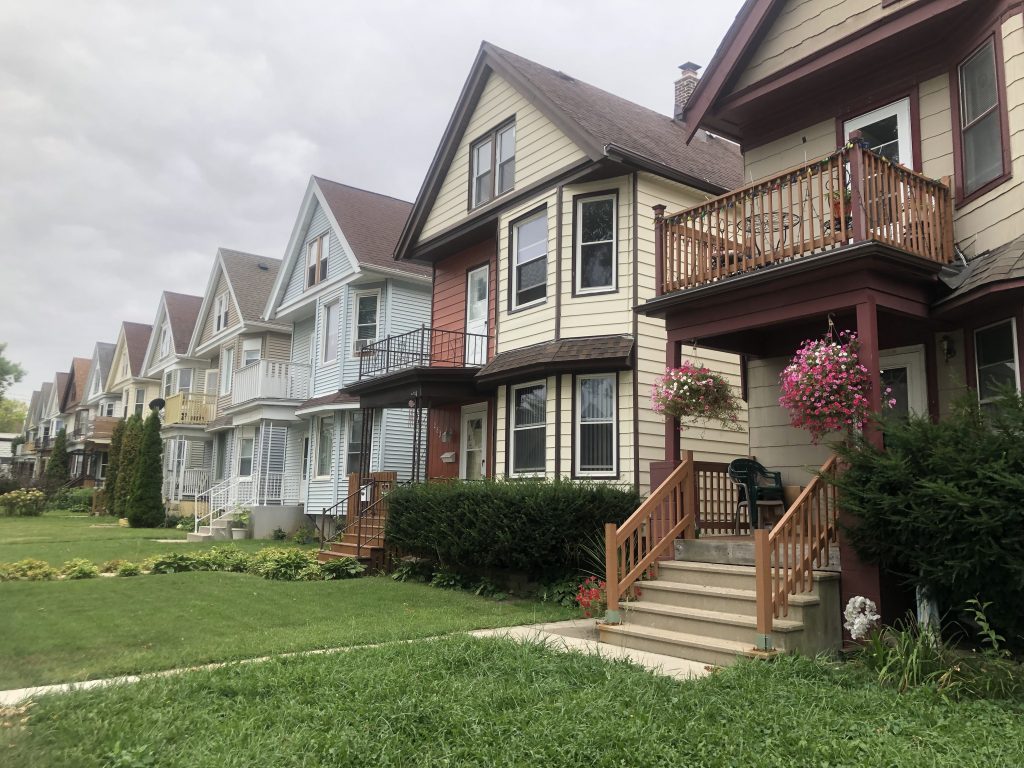Stop Fetishizing Old Buildings
All the city news you can use.
Every day at The Overhead Wire we sort through over 1,500 news items about cities and share the best ones with our email list. At the end of the week, we take some of the most popular stories and share them with Urban Milwaukee readers. They are national (or international) links, sometimes entertaining and sometimes absurd, but hopefully useful.
Stop fetishizing old buildings: UCLA researcher M. Nolan Gray believes we should stop fetishizing older homes while building new and more housing stock that’s safer and energy-efficient. While he’s not against fun design and history, the problem is that we continue to build less and less housing while paying more for housing that isn’t up to current standards such as ADA compliance and, in California, safe in an earthquake. (M. Nolan Gray | The Atlantic)
Who really governs cities?: In his new book Constructing Community, Jeremey Levine discusses how the governance of American cities has changed away from traditional urban machine politics as the public sector atrophies. Jake Blumgart interviews Levine in part about the rise of non-profits and foundations that have overtaken the public sector in some aspects and govern from outside of established accountability such as elections. (Jake Blumgart | Governing)
Cities can fix broken sidewalks faster: In 2016, disability rights activists won a lawsuit against the city of Los Angeles over the sad state of its sidewalks. The result is that the city is required to spend $1.4 billion over the next 30 years on sidewalks, but progress has been frustratingly slow. UCLA professor Donald Shoup suggests that the city can speed up the process by requiring sidewalks to be ADA compliant before a home is sold, putting the onus on homeowners to make faster fixes to the 10,750-mile network. (Donald Shoup | Bloomberg CityLab)
Milan announces huge expansion of bike network: The Italian city of Milan has approved a plan to build a 750km (466mi) bike path network by 2035. The idea is to put 86% of the 1.4 million residents of the city within a kilometer of the bike network that includes four circular lines around the core and 16 radial lines. The program is expected to cost €225 million. (Ron Johnson | Momentum Mag)
Creating a concrete block alternative: Residents of Boise Idaho have been asked to separate plastics labeled #4 and #7 into separate containers in order to reuse the hard to recycle plastics in those categories. Compliance has been low, but the city still collects 30 tons of material each month which is compressed and steamed to create blocks with Lego like molds for stacking. The process creates no emissions and uses 100% of the materials which makes them incredibly eco-friendly. (Rain Noe | Core77)
Quote of the Week
“We’re in a moment of urgency that has to be focused on finding solutions rather than staying focused on potential barriers. Policies are up for policymakers to change and revise as meets the needs of the moment. And we have partners along city, state, and federal government who are ready to go all in on this.”
Boston Mayor Michelle Wu in the Boston Globe discussing implementing policy ideas including fare free transit.
This week on the podcast, former BART GM Grace Crunican moderates a panel discussing the role of board members in transit agencies with former MBTA board member Monica Tibbits-Nutt and former Houston Metro board member Christof Spieler.
Want more links to read? Visit The Overhead Wire and signup.
Urban Reads
-
Congestion Pricing Cuts Air Pollution in New York City
 Dec 14th, 2025 by Jeff Wood
Dec 14th, 2025 by Jeff Wood
-
We Think We Love to Drive. But Do We Really?
 Dec 7th, 2025 by Jeff Wood
Dec 7th, 2025 by Jeff Wood
-
Can Scott Wiener Tackle America’s Housing Crisis?
 Nov 23rd, 2025 by Jeff Wood
Nov 23rd, 2025 by Jeff Wood






















Old homes can be renovated and made efficient. And honestly a lot of things need do be done correctly in order to have a truly efficient and healthy home, and that also means keeping up on maintenance (filters, etc) to make sure it keeps running well. Something that most homeowners probably just don’t want to keep up with.
German homes are designed to last 1,000 years… American homes are designed to last 50 years…
I think the Nolan Gray article really misses the mark. Home prices aren’t rising because we have collectively decided to “fetishize” old homes over new homes. They are principally rising because of monetary policy. The official policy of the Fed is to print money to drive asset prices up and create a “wealth effect”. US net worth, as calculated by the Fed was $44T in 2000, now it is north of $130T. The top 10 percent gained north of $60T of that new wealth, the bottom 50 percent gained nothing. I would bet the bottom 50 lives in older housing that, according to what the the author seems to imply, we need to tear down sooner than later. In my lifetime I lived in older housing based on location and price, I wasn’t fetishizing” anything. Lets not even get into the lunacy of building new homes in CA with the current climate crisis.